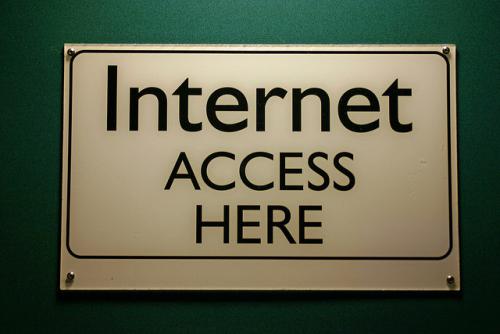
Image Credit:
Steve Rhode
This list is by no means complete. If I had the time, it would probably be 50 items long instead of 25. It came about as I was mulling over how to explain to students that no, the audience for any given text on the internet is (probably) not all internet users. And I realized that there are lot of these simple ideas floating around that many people don't know or ignore or forget, partly because some of them are commonsensical and don't seem to be worth mentioning and partly because they are made invisible by a lot of the popular ways of using and thinking about the internet. My title for this list was originally "25 Things Students Don't Know About the Internet," but as I began brainstorming, I realized that teachers (myself included) also tend to forget these simple ideas and thus forget to mention them to our students. And students will often readily assent to these ideas; they simply don't realize they're acting on these hidden assumptions.
- Not everyone in the world or even the U.S. has access to the internet.
- Not everyone who does have access also has consistent access to the internet.
- All information on the internet is NOT available at all times to all internet users.
- Even if information is in a publicly accessible space on the internet, not everyone will see it.
- A lot of information is only "publicly accessible" if you have the right computer, the right browser, and the right physical abilities.
- All this means that, even if information is posted in a publicly accessible space on the internet, the actual audience is definitely not everyone on the internet.
- The author's intended audience is probably also not everyone on the internet. If they say that it is, they're (probably) not thinking very rhetorically.
- Sometimes people don't like it when you take the information they posted publicly for one audience and put it elsewhere for a different audience --yes, even when it was already "public." For every example ever, see Facebook.
- Just because you can find information on the internet doesn't mean it's true.
- Just because you can't find information in the first two or three searches doesn't mean it's not on the internet.
- Just because you can't find information on the internet in the first twenty or thirty searches doesn't mean it's not on the internet.
- Accordingly, the ability to search for and find particular, credible sources of information is a skill that must be learned.
- Just because information isn't available on the internet doesn't mean it doesn't exist.
- Just because information isn't available on the internet doesn't mean you don't need it.
- Not everyone on the internet is an asshole.
- Not everyone on the internet will be nice to you or give you the benefit of the doubt.
- Your ability to be anonymous in any internet space is always limited and contingent.
- Your ability to be transparent in any internet space is always limited and contingent.
- Your ability to choose your audience in any internet space is always limited and contingent.
- Not every piece of text and media on the internet is free for the taking or unlimited use.
- But some things are, for some uses. These uses depends on a host of things, including but not limited to federal law, accepted practice, and good manners.
- Web utopians think the internet or its associated technologies have a revolutionary potential that will save our minds, our businesses, our politics, and in some cases, our souls. It won't.
- Web dystopians think the internet or its associate technologies are destroying our attention spans, our ability to communicate with each other, and the quality of our cultural output. It's not.
- The internet, like every other technology, works with and through and on society. One does not independently cause effects on the other.
- For all of these reasons, to use the internet thoughtfully and rhetorically must be considered a literacy, and one which must be explicitly taught to all of us who bounce so recklessly and hopefully around this new frontier.
Bonus: Like most other composition technologies, the internet is a source of both joy and terror about our responsibilities to ourselves and to each other. Internet forever.

